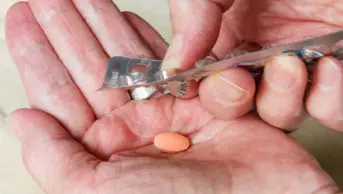
Shutterstock.com
Patients who have experienced ischaemic stroke often discontinue statin therapy or switch to a lower dose in the months following hospital discharge, but the consequences of this are unknown.
In a nationwide cohort study in the Journal of the American Heart Association (online, 2 August 2017), researchers used data from 45,151 patients in Taiwan, who received statins within 90 days of an ischaemic stroke[1]
.
During the day 90 to day 180 post-stroke period, 7% were on reduced statin therapy and 18.5% were no longer receiving statins. Compared with statin therapy maintained at the same dose, discontinuation was associated with a 42% greater risk of recurrent stroke over the course of a year (adjusted hazard ratio 1.42, 95% CI 1.28–1.57). Meanwhile, reduced statin dosage had no impact on additional risk.
Discontinuation of statin therapy in patients between three and six months after ischaemic stroke should be strongly discouraged, the team conclude.
References
[1] Lee M, Saver JL, Wu YL et al. Utilization of statins beyond the initial period after stroke and 1-year risk of recurrent stroke. J Am Heart Assoc 2017; 6:e005658. doi: 10.1161/JAHA.117.005658


